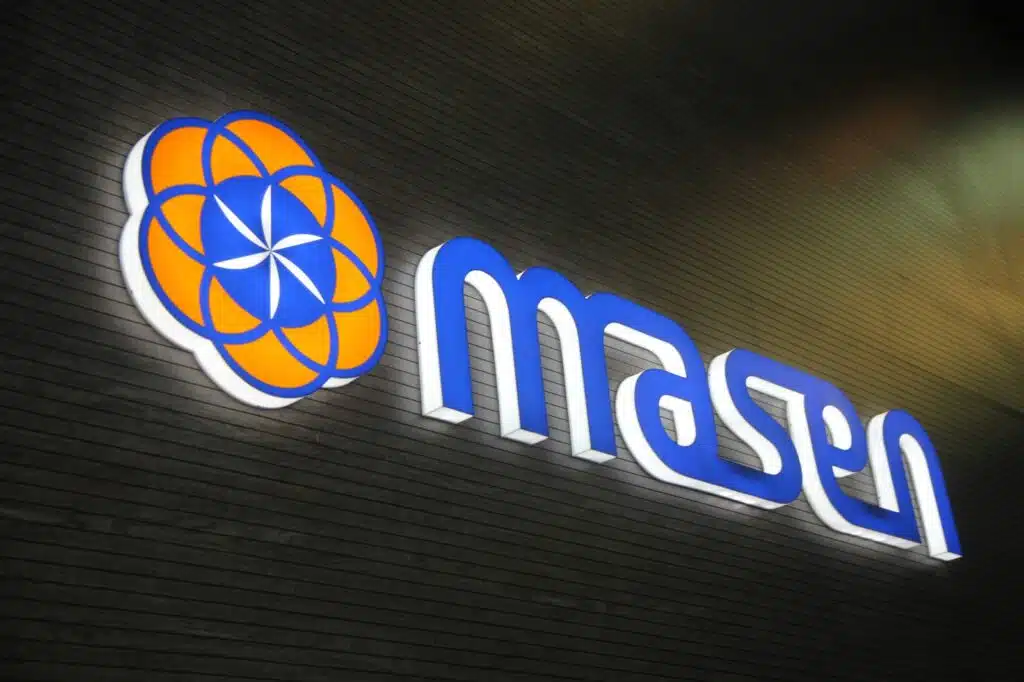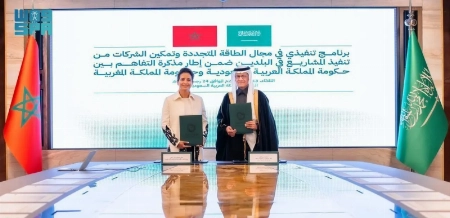
Mining in the Andes: Critical Minerals and the Next Phase of Global Investment

Renewable Energy Revolution in Morocco: How Masen Is Using GIS to Accelerate Clean Power Development

Morocco Strengthens Clean Energy Strategy and Sets 2040 as the Phase-Out Date for Coal
Morocco has committed to retiring coal power by 2040 with international financial and technical support, or in the late 2040s if no such support is forthcoming. This is the first time the North African nation has formally committed a timeframe for phasing out coal from its energy mix, a big step for the nation's energy production and climate policy.
The commitment is also at the heart of Morocco's new Nationally Determined Contribution (NDC) under the Paris Agreement. This document lays out the country's climate goals and its goal for reducing emissions. Morocco's historic move in 2023 to join the Powering Past Coal Alliance (PPCA), an international group of governments, businesses, and institutions working together to speed up the switch from coal-fired electricity generation, led to this commitment. Morocco's joining the PPCA was a big change for the country's energy policy and showed that it was more serious about fighting climate change.
Its big goals for renewable energy and building new infrastructure
Morocco has set an ambitious plan for the growth of its energy sector, in addition to phasing out coal. Morocco wants to greatly increase its renewable energy capacity to more than 15 gigawatts by 2030. This will mean a lot more wind, solar, and hydroelectric power plants. This kind of growth will include putting up new solar farms, wind parks, and maybe other renewable power plants all over Morocco, which is a country with a wide range of landscapes, from the Atlantic Ocean to the Sahara Desert.
As one of the steps to expand renewable power capacity, Morocco will make significant upgrading of its electricity grid infrastructure to support the higher share of variable renewable sources. Morocco is also planning to build large-scale energy storage facilities, which are essential in dealing with the intermittency of solar and wind power and ensuring grid stability. These storage systems for batteries and other storage means will provide/demand balance, stockpile excess renewable energy generated in hours of peak production and release it as needed.
These ambitious plans have the goal not only of reducing Morocco's carbon footprint but also of enhancing the country's energy security and independence. By reducing its reliance on imported fossil fuels, Morocco is trying to shield itself from volatile global energy markets and geopolitical tensions while, at the same time, accelerating the transition to cleaner, more sustainable energy.
Current Energy Environment and Rapidly Evolving Transformation
Despite all these ambitious plans for the future, however, coal remains the leading force in electricity generation in Morocco, with a share of 59.3% of total production in the year 2024. This is well down from its figure in 2022, when it stood at 70%, indicating that the process of weaning from coal has already begun. That the decrease of more than 10 percentage points over a span of two years represents the pace of transformation in Morocco's energy sector.
In the meantime, renewable sources of energy are seeing phenomenal expansion. Solar and wind power together generated close to 25% of Morocco's electricity in the previous year, more than doubling from 9% in 2015. This virtual doubling in under ten years is a testament to the country's investment in the development of renewables and the payoff on its investment in clean energy infrastructure. Hydro and other renewals generate more clean energy onto the national grid.
Government Vision and Global Praise
Morocco's Minister of Energy Leila Benali, speaking to the Powering Past Coal Alliance, once again confirmed that Morocco not only would retire existing coal power but also forgo developing new coal power. Minister Benali presented a vision for developing a "value-creating economy" through renewable energy that would generate jobs, bring in investment, stimulate innovation, and position Morocco as Africa's, and indeed the region's, clean energy technology hub.
Morocco's pledge was accepted by Julia Skorupska, PPCA Secretariat head, who termed the phase-out timeline "a crucial step" that would provide cleaner air, improved public health outcomes, and reduced electricity bills to Moroccan citizens and companies.The transition from coal will reduce air pollution and attendant breathing disease while, over the long run, potentially stabilizing or reducing energy costs as renewable energy sources become competitive.
Rachid Ennassiri, one of the top climate campaigners, welcomed Morocco's commitment as "a decisive evolution" of the country's climate policy, a breakthrough in the manner it produces energy and takes care of the planet. Climate activists have been calling on Morocco to accelerate the phase-out of fossil fuels for decades, and the commitment is a great victory for climate action in the region.
Global Context and Broader Trends
Morocco's phase-down of coal is a part of broader global trends away from the use of coal as an energy source. Renewable energy technology supplied more electricity than coal for the first time this year in a milestone as the energy transition of the planet reached its turning point. This aligns with the same trend with increasingly decreasing prices of solar and wind technology, improved energy storage capacity, and heightened political will to fight climate change.
New capacity installations in coal-fired power plants have dropped to a two-decade low across the world, with nations increasingly understanding the economic as well as environmental benefits of renewable energy. Global Coalitions, numerous countries are cancelling proposed coal projects and channeling investment into clean energy sources.
OECD nations have taken the lead in this transition, cutting their electricity from coal by half since 2015 collectively. Other countries such as the United Kingdom, Germany, and Canada have also adopted ambitious phase-down timetables for coal, with some phasing out coal entirely from their energy mix.
Emerging economies that have historically relied on coal to fuel economic expansion and generate electricity are beginning to consider how to move away from coal as well.Indonesia and South Africa are also testing novel early retirement mechanisms for coal power, as well as through global finance platforms such as Just Energy Transition Partnerships (JETPs). These initiatives provide financing and technical assistance to help developing countries transition away from coal while protecting workers and communities dependent on the coal industry from being left behind.
Morocco's commitment gives extra momentum to this global shift and demonstrates how middle-income countries can make their climate ambitions while supporting economic growth. With the most developed economy in Africa investing in renewable power, Morocco's record could encourage other African countries to boost their own clean energy revolution.


